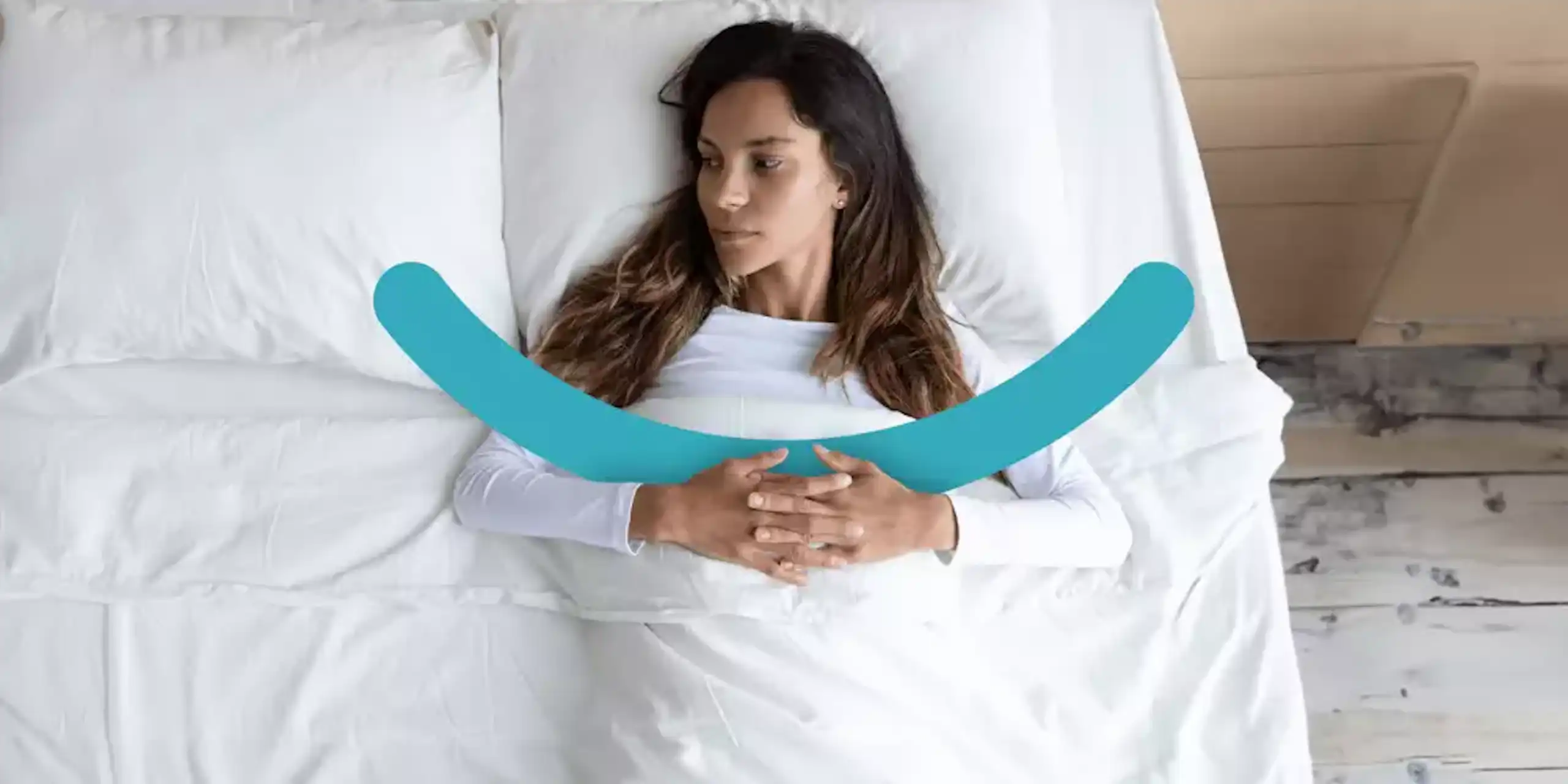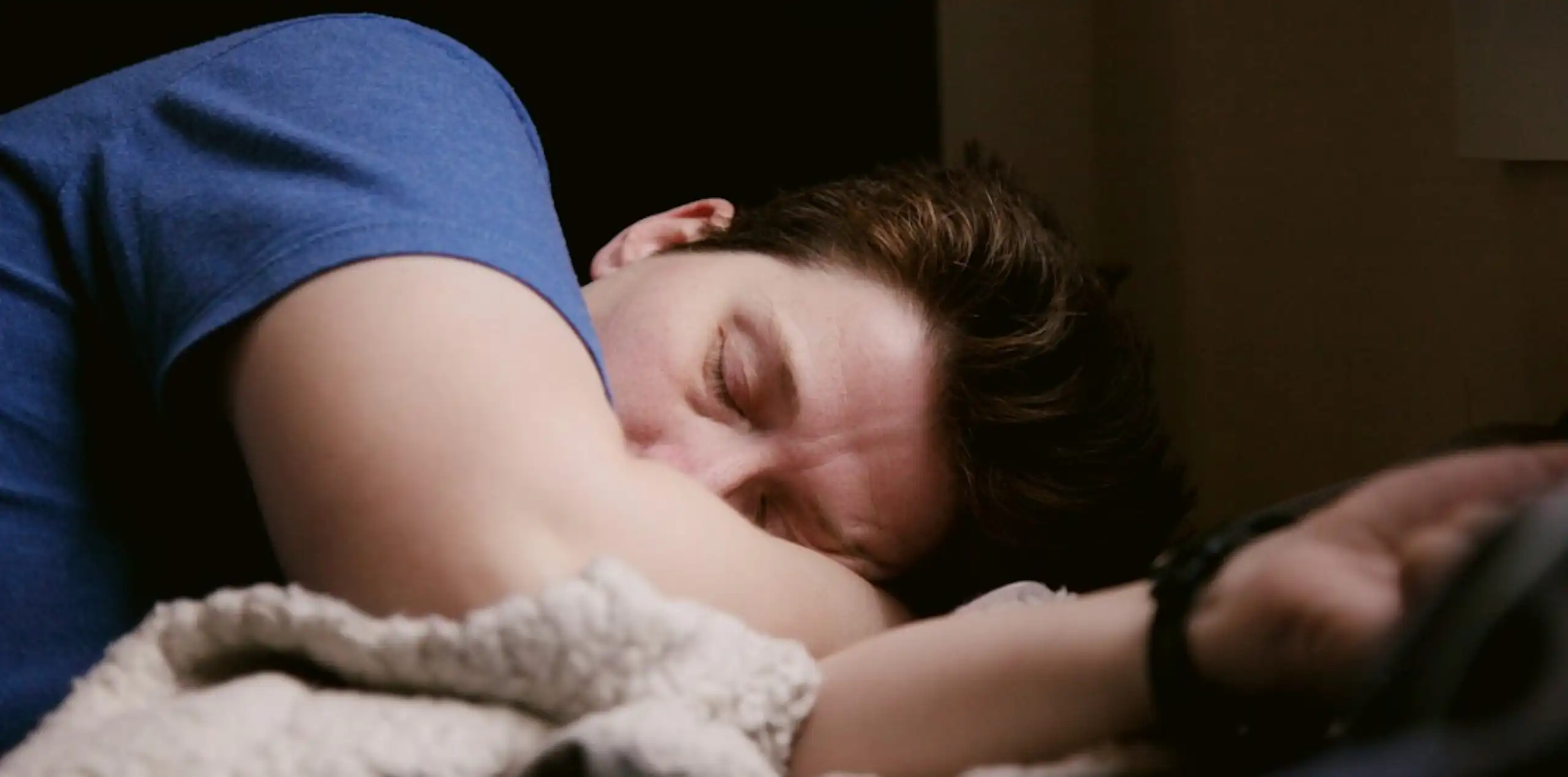Wouldn’t it be great if you could sink like a stone and fall asleep as soon as your head hits the pillow? Sounds like a dream. However, for most people, that’s not quite how it works. Nearly everyone is familiar with that seemingly inescapable feeling of being awake in the middle of the night, with everything quiet – except for your brain.
We’ve all been there. You do everything right — you go to bed on time, stay away from all devices a good hour before lights out, and feel 100% ready to nod off at a moment’s notice. But then sleep proves elusive and the mind goes into overdrive.
Why? Because once the day’s preoccupation — work, family, chores, news — falls away, a busy mind, suddenly free from distraction, surfaces all thoughts, as if a filter has been removed. So many people who experience restless sleep are basically struggling to settle their minds. And even when the body is sleeping, a restless, overactive mind can also wake you up … and create difficulty in drifting off again.
If you are anxious or suffer from an anxiety condition, chances are you don't find it very easy to fall asleep. Relaxing your mind at the end of a full day is challenging at the best of times, but when you also have anxiety to contend with, you may find yourself physically and mentally challenged when trying to convince your body to sleep.
The consequences of going without good sleep
It’s recommended that adults up to the age of 64 should get between 7 and 9 hours of sleep every night. However, according to Mental Health UK, almost 1 in 5 people in the UK aren’t getting enough sleep.
Consistently having trouble sleeping and not getting sufficient sleep can have long-term physical effects. Sleep deprivation has been linked to increased risk for chronic diseases, including type 2 diabetes, cardiovascular disease, obesity, and depression. It can also mess with our clarity of mind, causing short-term and long-term memory issues.
Poor sleep can affect your physical and mental health. Not getting enough good quality sleep can sap your energy levels, lower your mood, and reduce your concentration. It can also negatively impact your relationships, immune system, work, and social life.
Good habits and healthy sleep patterns
Investing in good habits can create the ideal conditions for a restful night’s sleep. Changing your habits is enough to restore healthy sleeping patterns for many people with insomnia, and finding a process that works for you makes it easier to fall asleep, stay asleep, and wake up feeling well-rested.
If you have trouble falling asleep and are wondering what you could try to change your habits, we’ve gathered a number of clinically tested recommendations to help you drift off into dreamland…
- Listen to a sleep story
Similar to bedtime stories, sleep stories take you on an audio-guided tour of a dreamy environment, whether that’s a beautiful night in Marrakesh or a tranquil evening by the sea. You can access a range of 20-minute sleep stories using the Wisdom app for a soothing, immersive night-time experience.
- Create restful conditions
Creating a peaceful environment is really important in facilitating a healthy night’s sleep. Keep your room as dark as possible as you don’t want to be awoken by any unwelcome lights. Is your room too warm or too cold? Any sudden temperature changes can wake you when you least expect. Make sure to invest in a good-quality bed and a mattress you feel comfortable in as this will also contribute to how relaxed you will feel.
- Leave your devices alone
The first thing many people do, either before sleep or when waking up, is reach for their phone … more often than not, this is an unconscious habit where you automatically reach for your phone, but all this does is stimulate the mind, which defeats the point of winding down. Do your mind a favour and leave your devices alone.
- Watch what you’re eating and drinking
Cut down on caffeine in tea, coffee, energy drinks or colas, especially in the evening. Caffeine interferes with the process of falling asleep and also prevents deep sleep. Instead, have a warm, milky drink or herbal tea. Too much food or alcohol, especially late at night, can interrupt your sleep patterns. Alcohol may help you to fall asleep initially, but it will disrupt your sleep later on in the night.
- Think about how your job, commute, and work environment can affect your mental health
Many UK workers say that not having to commute long distances helps them get the right amount of sleep. Once the working day is over, stop and think whether you should be answering emails or work phone calls outside of work hours. Does your work environment, whether it’s at home, in an office or elsewhere make you feel regularly stressed and tired? Do you worry about your job late at night? If your job is affecting your mental health, then consider making a change to your routine or ask for a more flexible working pattern.
Supporting employees with mental health & sleep
With a HA | Wisdom Wellbeing Employee Assistance Programme (EAP), we can offer you practical advice with mental health in the workplace and support when it comes to dealing with anxiety, burnout, and how to improve your work-life balance.
Our EAP provides guidance and supports your employees with their mental health in the workplace and at home. We can help you create a safe, productive workspace that supports all.
We support your employee's mental wellbeing with any problems they might be facing in their professional or personal lives with our 24-hour counselling helpline.











